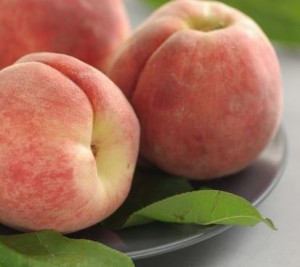 If you have been following the news over the past week you have likely heard that organic foods are no more nutritious than conventional foods. This is according to a recent review published in the American Journal of Clinical Nutrition. I thought I would weigh in on this topic since nutritional superiority of organic vs conventional foods has been questioned for a long time and it appears there is still no overwhelming evidence one way or another.
If you have been following the news over the past week you have likely heard that organic foods are no more nutritious than conventional foods. This is according to a recent review published in the American Journal of Clinical Nutrition. I thought I would weigh in on this topic since nutritional superiority of organic vs conventional foods has been questioned for a long time and it appears there is still no overwhelming evidence one way or another.
Does this new review mean we say “no” to organic? I DON’T think so! Regardless of nutritional superiority, I think one of the main reasons to try to buy organic is to decrease the pesticide exposure to your family as much as possible. I must also mention that just because a food says it is organic, it does not mean it is healthy. There are lots of unhealthy organic foods on the market. Organic foods certainly have fewer pesticides than conventional foods. However, with the economy today not everyone has the luxury of a food budget which allows you to always choose organic. My husband was laid off from work in April and I’ve had to prioritize the foods that I continue to buy organic while trying to make our food dollars work smarter. I also work with multi-million dollar athletes and was recently asked by a player’s wife if it made sense for her to buy organic for her family or if it was a waste of money. I explained that if money is not a consideration (as it is for most of us) then I would encourage her to choose organic or foods grown locally using organic standards.
To help you prioritize here are some of top pesticide offenders according to the Environmental Working Group. In other words, these “Dirty Dozen” are the top 12 foods to buy organic. Click here [1] for your own downloadable pocket guide [1] of the “Dirty Dozen” and “Clean 15”.
Dirty Dozen
1. Peaches
2. Apples
3. Bell peppers
4. Celery
5. Nectarines
6. Strawberries
7. Cherries
8. Kale
9. Lettuce
10. Grapes
11. Carrots
12. Pears
Source: Environmental Working Group [1]
Keep in mind that many local farmers follow organic practices but can’t afford the requirements to become certified organic. Farmer’s markets will often save you money and allow you to get fresh and delicious foods at a better price while still limiting pesticide exposure to your family. And there is something very special about meeting the people who grow your food!
Do you want to help your community, your health, and eat the most delicious fresh fruits and vegetables at the same time? I thought so! That’s why I want to share with you another option that I suggest you consider- that is signing up for a Community Supported Agriculture (CSA).
CSA is a way that you can buy local, seasonal fruits and vegetables directly from farmers in your area. How it works: you subscribe or buy a share of the farm, and in exchange you are presented with a basket full of juicy peaches, berries, apples, sweet peas, corn, basil – whatever is in season – each week. Bonus: Some farms also include eggs, breads, jams, honey and even flowers (and once a vanilla candle)! And, in addition to the scrumptious treats found in every basket, there are even more advantages involved in joining a CSA:
-Eating super fresh fruits and veggies means more flavor and vitamin benefits!
-Children are more apt to eat food that comes from their farm and get excited about the regular deliveries or trips to pick up the baskets of fruits and veggies. My kids say “let’s go get the food from the farmers”.
-You’ll be exposed to new types of produce! Not sure what to do with them? Use a search engine to discover simple ways to incorporate them into your recipes. I developed a Napa Cabbage White Bean Soup from my CSA for the new book I co-authored, The All-Pro Diet [2].
-Organic farming methods are often used – just another way you are helping your health and the environment!
With over 1300 CSA farms in North America, it’s easy to get involved! All you need to do is check out LocalHarvest.org [3] to find one near you (this great website also includes your local farmers’ markets). Supporting your local farmer, your health, the environment, and eating amazing food all at the same time –there’s simply no reason not to join!
America’s Nutrition Expert Bottom Line:
1. Eat organic when possibly but especially for the foods listed on the dirty dozen list in addition to dairy.
2. Visit a farmer’s market in your area.
3. Consider joining a CSA
Do you shop at a farmer’s market or belong to a CSA? Please tell me all about it! Also, stay tuned, later this week I will be blogging about growing your own garden…any questions you would like for me to address?
